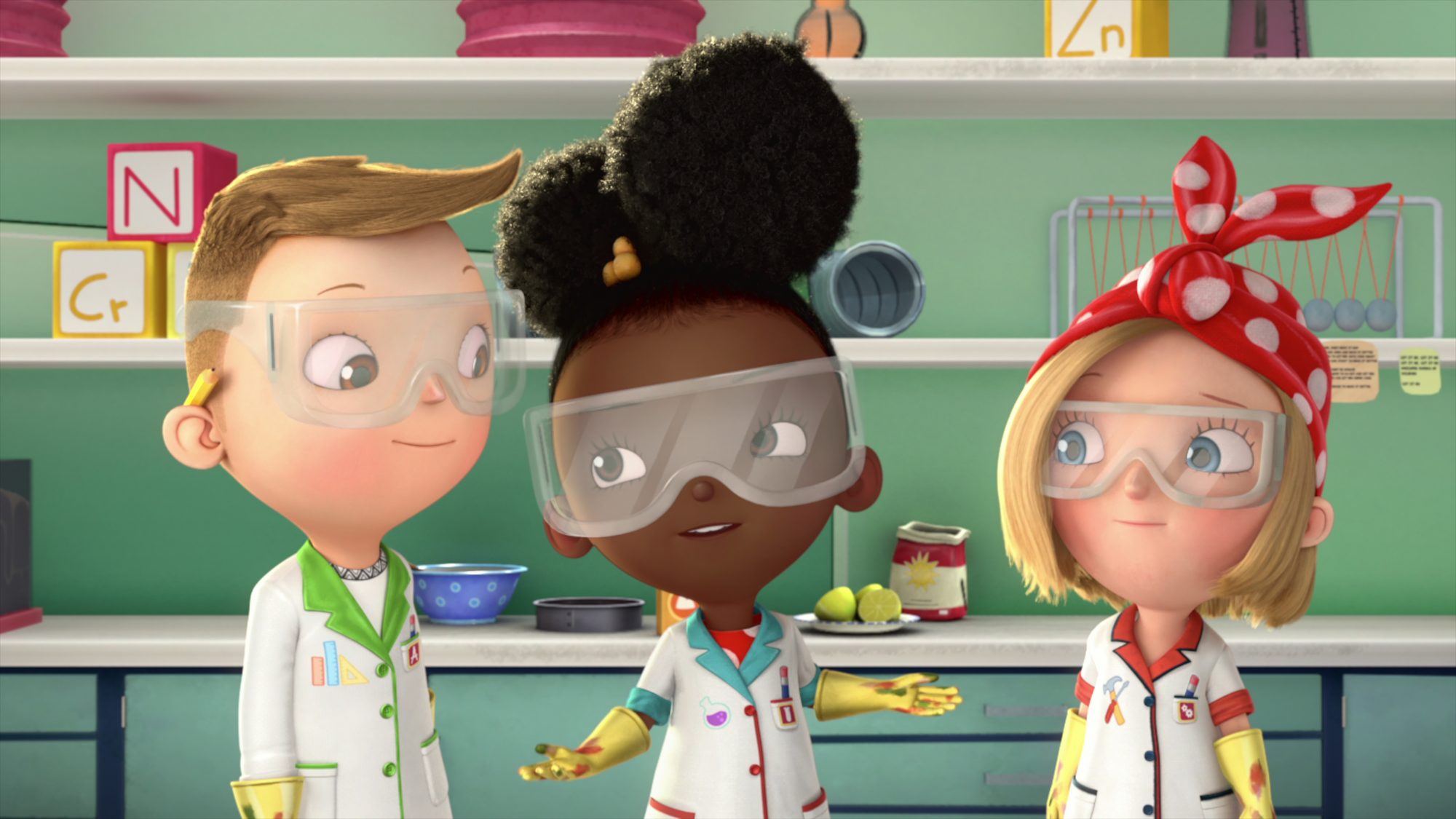
Netflix has an impressive roster of animated preschool series with diverse characters. What makes Ada Twist, Scientist, which Netflix recently renewed for a second season, impactful is that it centers a science-loving little Black girl and her precocious friends who love to learn, explore, and ask questions. Put simply, it's changing who kids see as scientists.
Ada Twist, Scientist will follow 8-year-old scientist Ada as she journeys to learn about the world around her and solve mysteries using science. Kerri Grant, lead producer and showrunner on Ada Twist, Scientist, says the balance between having representation and keeping the characters nuanced and authentic was delicate but necessary.
"We are really focused on making sure we have representation both on and off camera with this series—different races and abilities and disabilities in our crew, the writers team, composing team, the scientists at the end of each episode and, of course, in the characters in the show," Grant says, explaining that it took longer than average to make sure they were getting the characters right. "Representation is something we actively talk and think about."
While Black girls and women as scientists is not a novel concept, historically, their contributions to the world of science have not always been given visibility. Despite the number of Black inventors who've made our everyday lives easier through their work, not until recently has the National Inventors Hall of Fame inducted Black women in its 50 years. Earlier this month, geology professor and commercial astronaut Sian Proctor became the first Black woman to pilot a spacecraft. These firsts are notable, but they come after hundreds of years of Black women doing pioneering scientific research and experiments and making discoveries. With films like Hidden Figures, Fast Color, and See You Yesterday, Black female representation in STEM has slowly grown in film and television. However, the slow change in visibility and the overall lack of STEM role models for Black girls have a profound impact.
According to the National Science Board, as early as elementary school, Black students begin to internalize thoughts that they cannot excel in STEM-related subjects, especially math and science. Institutional discrimination, discriminatory teaching practices, and a lack of visibility contribute to STEM underrepresentation for Black students. According to a 2019 study on Black girls in STEM, deep-rooted perceptions about gender roles and racial stereotypes uphold teaching practices that continue to discourage and marginalize Black girls from the field. The report also points to the consequences of educational inequality, a lack of culturally relevant education in the U.S., and our education system's failure to include the achievements of Black women in the curriculum. If school lessons don't properly represent Black female scientists, Grant says that's where television and film media can step in.
"At a certain age, girls, especially, stop being interested in science. We want little girls to know that there is science in everything," she says. "We're showing all kinds of scientists—on a boat, in the kitchen, and more places. Those are their labs."
Breaking the myth that a scientist only looks like a white man in a white coat in a science lab is especially important for young Black girls. Despite Black women being one of the most educated demographics holding the most advanced degrees, research shows that they still hold a meager percentage of leadership positions in STEM. A 2016 report from the National Science Foundation also showed that despite Black women earning over 33,000 bachelor's degrees in STEM fields, only 5 percent of senior-level positions were held by Black men and women combined.
Visibility matters, and a lack thereof, positions young girls with an innate curiosity about science at a disadvantage. Efforts to increase the number of women in STEM fields have worked, but only for one group. Pew Research Center reports that more white women earned STEM degrees than men in 2018. Research from the National Science Board supports that this uneven increase is a function of the same inequalities that keep Black girls out of STEM. "White girls have privileges that are mostly inaccessible to Black girls," researchers said. "As such, they have been able to mediate their underrepresentation as we see their numbers in STEM degree attainment and enrollment in advanced math courses increasing significantly over time."
With shows like Ada Twist, Scientist young Black learners can grasp early on that the possibilities for them in science are endless. In fact, that's one of Grant's greatest takeaways from her work on the show.
"Ada Twist has the power to change the landscape in children's media," she says. Many Black parents, she says, have shared photos with her of their own daughters who see themselves in Ada. "It's so cool to see a little Black girl in the lead role and as a scientist."





